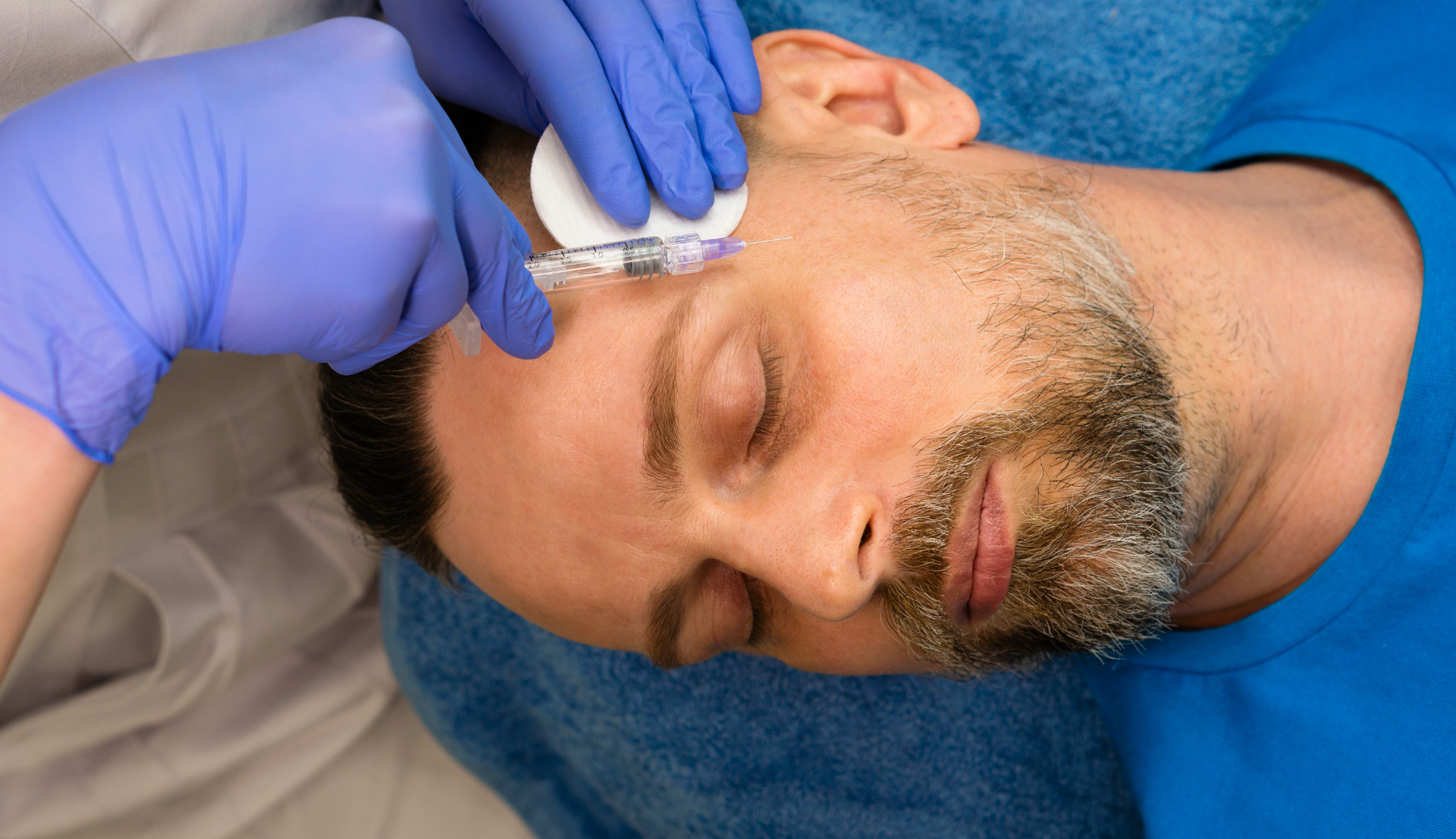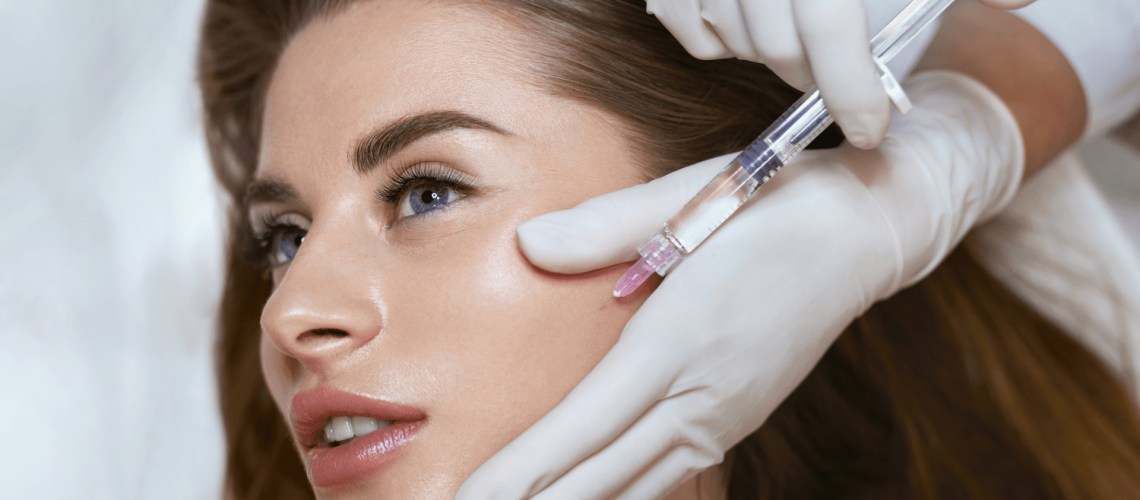In the ever-evolving landscape of skincare, there’s a constant quest for innovative treatments that promise rejuvenation, radiance, and overall skin wellness. One such treatment that has been gaining attention is mesotherapy. Mesotherapy, often dubbed as the “miracle injection,” has been making waves in the realm of dermatology and aesthetics. But what exactly is mesotherapy, and what does it entail for achieving skin wellness? Let’s delve into this intriguing subject and uncover its mysteries.
Mesotherapy is a minimally invasive procedure that involves injecting a cocktail of vitamins, minerals, amino acids, and other active ingredients directly into the mesoderm, the middle layer of the skin. Developed in the 1950s by French physician Dr. Michel Pistor, mesotherapy was initially utilized to relieve pain and treat various medical conditions. However, over the years, its applications expanded to include cosmetic purposes, particularly for skin rejuvenation and cellulite reduction.
One of the key aspects that make mesotherapy appealing is its targeted approach. By delivering nutrients and therapeutic agents directly to the skin’s deeper layers, mesotherapy aims to stimulate collagen production, improve circulation, and promote cellular regeneration. This targeted delivery is believed to enhance the effectiveness of the ingredients, resulting in visible improvements in skin texture, tone, and firmness.
Read more: Mesotherapy for Stretch marks Reduction
But mesotherapy isn’t just about superficial beauty; it’s also about holistic skin wellness. The cocktail of ingredients used in mesotherapy can be customized to address specific skin concerns, whether it’s acne, pigmentation, fine lines, or dehydration. This personalized approach allows dermatologists and aesthetic practitioners to tailor the treatment according to each individual’s unique needs, ensuring optimal results.

Moreover, mesotherapy is prized for its safety profile and minimal downtime. Unlike more invasive procedures like surgery or laser therapy, mesotherapy typically involves little to no discomfort and requires no anesthesia. Patients can resume their normal activities immediately after the treatment, making it a convenient option for those with busy lifestyles.
Of course, like any cosmetic procedure, mesotherapy has its limitations and potential risks. While it’s generally considered safe when performed by a qualified practitioner, adverse effects such as bruising, swelling, and infection can occur, albeit rarely. It’s crucial for individuals considering mesotherapy to consult with a reputable dermatologist or cosmetic surgeon and thoroughly discuss the benefits, risks, and expected outcomes.
As with any skincare regimen, consistency is key when it comes to mesotherapy. While some patients may experience noticeable improvements after just one session, a series of treatments is usually recommended to achieve optimal results. Additionally, incorporating good skincare habits, such as wearing sunscreen and staying hydrated, can help prolong the benefits of mesotherapy and maintain overall skin health.
Continuing on the journey of mesotherapy, let’s explore some specific ingredients commonly used in mesotherapy cocktails and their benefits for skin wellness:
- Hyaluronic Acid: Known for its hydrating properties, hyaluronic acid is a naturally occurring substance in the skin that helps maintain moisture levels. When injected during mesotherapy, hyaluronic acid replenishes lost hydration, plumps up the skin, and reduces the appearance of fine lines and wrinkles.
- Vitamin C: As a powerful antioxidant, vitamin C helps protect the skin from environmental damage caused by free radicals. In mesotherapy, vitamin C promotes collagen synthesis, brightens dull skin, and evens out skin tone, resulting in a more youthful and radiant complexion.
- Peptides: Peptides are short chains of amino acids that play a crucial role in collagen and elastin production. By incorporating peptides into mesotherapy cocktails, it’s possible to stimulate collagen synthesis, improve skin elasticity, and reduce the signs of aging, such as sagging and wrinkles.
- Growth Factors: Growth factors are proteins that regulate cell growth, proliferation, and differentiation. In mesotherapy, growth factors derived from platelet-rich plasma (PRP) or other sources can promote tissue repair, accelerate wound healing, and rejuvenate the skin by stimulating the production of new cells and blood vessels.
- Niacinamide (Vitamin B3): Niacinamide is known for its anti-inflammatory and antioxidant properties. When included in mesotherapy formulations, niacinamide can help calm redness, reduce acne breakouts, regulate sebum production, and improve the overall texture of the skin.
These are just a few examples of the many active ingredients that can be incorporated into mesotherapy cocktails to target specific skin concerns and promote overall skin wellness. However, it’s important to note that the effectiveness of mesotherapy depends not only on the ingredients used but also on factors such as the skill of the practitioner, the quality of the products, and the individual’s skin type and condition.
In addition to its cosmetic benefits, mesotherapy has also shown promise in addressing certain medical conditions, such as alopecia (hair loss), musculoskeletal pain, and lymphedema. Research in these areas is ongoing, further highlighting the versatility and potential applications of mesotherapy beyond aesthetics.
Mesotherapy Procedure
During a mesotherapy session, the practitioner begins by assessing the patient’s skin and discussing their concerns and goals. Based on this evaluation, a customized cocktail of ingredients is prepared to address specific issues such as aging, acne, pigmentation, or hydration.
The skin is typically cleansed to remove any makeup, dirt, or oils, ensuring optimal penetration of the mesotherapy solution. Then, using a fine-gauge needle or a mesotherapy gun, the practitioner administers the injections into the targeted areas of the skin. The injections are delivered at precise depths and angles to maximize absorption and minimize discomfort.
Depending on the size of the treatment area and the number of concerns being addressed, a mesotherapy session can take anywhere from 15 minutes to an hour. Most patients report minimal discomfort during the procedure, likening the sensation to tiny pinpricks or slight pressure.
After the injections are administered, the skin may appear slightly red or swollen, but these side effects typically subside within a few hours to a few days. Patients are advised to avoid excessive sun exposure, vigorous exercise, and skincare products containing harsh ingredients in the immediate aftermath of treatment to minimize the risk of irritation or complications.

Over the following weeks, patients may notice gradual improvements in their skin’s texture, tone, and overall appearance as the mesotherapy solution takes effect. Depending on the individual’s needs and goals, a series of treatments spaced several weeks apart may be recommended to achieve optimal results and maintain long-term skin wellness.
Applications of Mesotherapy
- Anti-Aging: Mesotherapy can help combat the signs of aging by stimulating collagen and elastin production, reducing wrinkles and fine lines, and restoring skin elasticity and firmness.
- Acne Treatment: Mesotherapy can be effective in treating acne by delivering anti-inflammatory and antibacterial ingredients directly to the affected areas, reducing inflammation, controlling sebum production, and preventing future breakouts.
- Pigmentation Correction: Mesotherapy can help lighten and even out pigmentation irregularities such as sunspots, melasma, and post-inflammatory hyperpigmentation by inhibiting melanin production and promoting cell turnover.
- Scar Revision: Mesotherapy can be used to improve the appearance of scars caused by acne, surgery, or injury by stimulating collagen remodeling and promoting tissue regeneration, resulting in smoother, more even skin texture.
- Hair Restoration: Mesotherapy has shown promise in promoting hair growth and preventing hair loss by increasing blood circulation to the scalp, nourishing hair follicles, and stimulating hair follicle activity.
These are just a few examples of the many applications of mesotherapy in dermatology and aesthetics. With its versatility, safety, and efficacy, mesotherapy continues to be a valuable tool for promoting skin wellness and addressing a wide range of concerns, offering patients a non-invasive and customizable approach to achieving their skincare goals.


